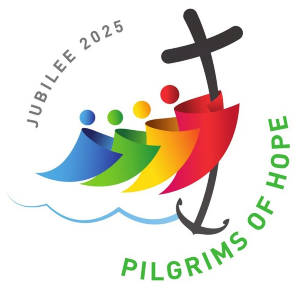British Values
At Our Lady of Grace Catholic Infant School, we are learning to love and grow like Jesus
Democracy:
What Can We Do?
• Ensure that everyone has a right to have a say • Ensure the child’s, parents' and staff’s voice is heard. Support children to take turns • Encourage children to share • Support children to become independent and take responsibility • Support children to learn boundaries • Give children the opportunities to make choices • Promote a climate to share opinions and ideas • Ensure that children are listened to • Respect everyone as an individual • Role model behaviour • Celebrate differences in people • Support children to have a positive sense of their own identity and culture.
Evidence
• Pupil Voice • School Council – children voting for their class representative • Pupil Questionnaires • Parent Questionnaires • Staff Questionnaires • Parents Support Group • Our Lady of Grace Schools' Friends Association • Staff Meetings/Briefings • Appraisal/Review meetings. School Mission Statement • School Behaviour Policy • Religious Education Lessons • Cross-Curricular Speaking and Listening opportunities. School Council/Playleaders. • Assemblies that emphases the commandment – to love your neighbour as yourself/The Good Samaritan/the story of Zacchaeus etc. • Visitors to school ie local councillors • Lenten/Advent Charity Work • Science: everyone is different/Journey in Love • Displays • High expectations of behaviour and what can be achieved by each individual • International monthly focus • Geography curriculum • Website • Feedback to children re behaviour/work. • Circle Time.
The Rule of Law
What Can We Do?
Support children to understand right and wrong • Support children’s understanding of how the law of the land and our school rules reflect the 10 Commandments • Share and support the rules of the setting with all stakeholders • To ensure children have an understanding of the consequences of their actions • To ensure there is no discrimination within the setting • To ensure that any discrimination identified is addressed within the setting • To ensure children have a sense of fairness • Listen to the child’s voice when deciding the setting’s rules and boundaries.
Evidence
The children's creation of their own class rules based on the Rights Respecting Charter. • School Behaviour Policy shared with all stakeholders – also on the website. • Pupil Voice • Circle time/Religious Education Lessons. • Children encouraged to take responsibility for their own actions. • Safeguarding/Anti-bullying/SEND policies. • Behaviour log/Bullying log/Racist incidents log • Pupil Voice • School Council. Weekly Gospel • School Assemblies on the theme of fairness/ discrimination • Support from local police liaison officer – ie assemblies to introduce themselves and to reinforce the law of the land. • Support from traffic wardens etc to reinforce local laws. • Home/School Agreements • Key Stage Booklets. • Pupil/Parent Questionnaires. • Staff meetings re behaviour/anti-bullying. • Visitors to school – people who help us. • British History topics outlining how the law has evolved.
Individual Liberty
What Can We Do?
• Plan for individual children • Ensure all information about the child progress and development is shared with both child and parents. • Ensure children have access to resources • To support parental choice • To support the rights of the child • To support children to make the right choices • To listen to everyone’s point of view • To ensure all stakeholders are considerate of others and the environment.
Evidence
Mission Statement • RE Curriculum – encouraging children to respect both themselves and others • Target setting with children • Encouraging good listening skills • Pupil Voice • Differentiation in planning/teaching • Encouraging the children to be independent and reflective learners • ECHP’s Medical plans etc • Parents/Pupil Meetings. • Reports to parents • Behaviour Policy • Anti-bullying policy • Safeguarding Policy. • Home School Agreement. • School Website • Encouraging an understanding of the rights of the child through CAFOD and Childline – and visits from them.
Mutual Respect
What Can We Do?
Provide opportunities to consult parents • To work together as a team respecting each other • To ensure parents are involved in their children’s learning • To provide positive role models • To value individuality • To value all cultures and beliefs • To respect all languages • To respect each other’s space • To ensure all stakeholders feel safe and secure.
Evidence
Positive Role models – adults and children • Good behaviour • RE Lessons emphasising that every person is unique and ‘crated in the image of God’ • Mission Statement • Parent Forum • Parent questionnaires • Learning about other faiths • Learning about other cultures - geography • Celebrations – such as International Week, Gospel Assemblies • Celebrating festivals of other cultures ie Diwali, Chinese New Year • Links with local and deanery schools • Charity work • Website Ethos/vision statement • Displays around the school • Stories • Circle time.
Tolerance of Those of Different Faiths and Beliefs
What Can We Do?
• To combat discrimination through awareness • To ensure ethos of setting reflects an awareness of all cultures and beliefs • To have knowledge and understanding of other cultures and beliefs • To celebrate diversity within and outside the setting • To role model behaviour and attitudes towards others • To encourage all parental input in the setting.
Evidence
Assemblies – ie anti-bullying, Gospel Assemblies based on how Jesus encouraged tolerance in such stories as the’ Good Samaritan’ and the ‘Woman at the Well’ • Class discussions • Study of other faiths • Visits • Ethos/vision • Website • Celebrations • Festivals • Parental involvement.











